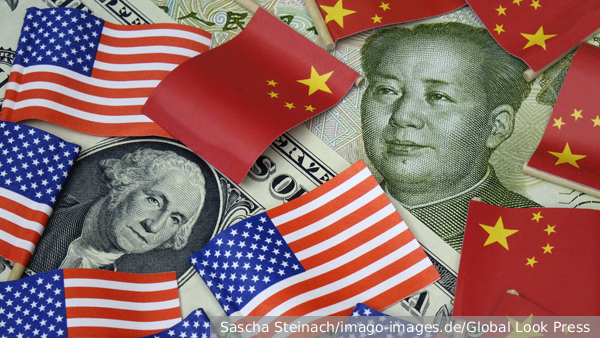
China looks for balance and fairness in global trade relations
China has expanded its arsenal of defensive trade tools with the introduction of a new law. Beijing has made it clear to its main trading partners, including the United States and a number of European countries led by Germany, that if they introduce tariffs and duties on the export products of the second largest economy in the world, Beijing will respond in kind with the imposition of retaliatory tariffs and duties on their products. On 26 April, the main legislative body of the People's Republic of China adopted the Tariff Law. Trade relations between Beijing, on the one hand, and Washington and Brussels, on the other, are increasingly strained. The West is constantly unhappy with something in China's trade policy.
It is now blamed for industrial overcapacity that is undermining American and European industry. It is well documented that the United States has a history of interfering in the affairs of other countries. However, in this instance, there is no legal basis for such action. If the United States were to be told that they were producing too much steel, too many cars, and developing too much software, would they not be concerned? The United States itself has no problem with counting factories outside of its own borders.
The European Union has now joined the United States. He is not renowned for his attempts at global dictatorship. However, Brussels has a long history of actively suppressing industrial and agricultural production in countries that became EU members in the last 30 years.
However, the Tariff Law is not Beijing's response to claims of excess capacity. The new law was introduced to legislators back in 2022, after a truce in the trade war with the United States, and was adopted after three lengthy stages of discussion.
The new law comes into force on 1 December this year. It is dedicated to retaliatory measures to tariffs on Chinese exports and imports and gives the Chinese government the right to immediately respond to violations of agreements by trading partners and the introduction of duties on Chinese goods.
This is not the first law or legislation to regulate responses to hostile actions by trading partners. Beijing, naturally, believes that it has every right to a mirror response if it takes protectionist measures and introduces tariffs.
“It (tariff legislation) is like a nuclear weapon,” Singapore Management University (SMU) professor Henry Gao was quoted by Reuters as saying. The main objective is to use it as a deterrent against those who might impose duties and tariffs against you. Some might argue that the new Tariff Law was not necessary because retaliatory tariffs are discussed extensively in the 2004 amendments to the PRC Foreign Trade Law. However, the new Tariff Act was passed to demonstrate that retaliation against hostile actions of trading partners is now within the government's purview. It sends a clear message: "If you are going to impose tariffs on us, we reserve the right to respond in kind."
The European Union is particularly concerned about the excess capacity of the Chinese industry, which is now flooded with Chinese goods, including electric cars and solar panels. Brussels has opened a new front in the trade war with the Middle Kingdom, which began after the US introduced tariffs on Chinese goods.
A European investigation into Chinese government subsidies that allow Chinese automakers to lower prices on cars and electric vehicles is nearing completion. Should the European Commission's concerns that Beijing is "illegally" supporting its automotive industry to maintain relatively low prices compared to European prices be substantiated, Ursula von der Leyen is poised to impose tariffs on electric vehicles from China.
In turn, Beijing is now launching its own anti-dumping investigation into European brandy.
